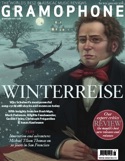Texte paru dans: / Appeared in: |
|
|
Outil de traduction ~ Approximatif ~ Translator tool |
|
|
Reviewer:
Lindsay
Kemp Florilegium put concert performances of the Brandenburg Concertos at the heart of their 20th-anniversary celebrations in 2011 and this recording is a natural end result. It bears the hallmarks of coming into being that way, principally in interpretations that are well played-in and sure of their interpretative selves. These are not the kind of quirky, deliberately shocking or simply whirlwind performances you sometimes get from groups eager to make a mark (though those certainly have their place), but rather the type that lets grown-up musicianship and instrumental expertise help Bach himself do most of the talking.
Ashley Solomon’s decision to present the concertos in reverse order, so that the number of players increases with each work, is unlikely to mean much to listeners picking a favourite concerto or two to enjoy. Yet I can’t help liking the fact that No 6 comes first, especially as it makes such an impact with its deliciously ‘stringy’ sound (the violas tickling us with their turn figures in the first movement) and a finale which highlights the contrast between steady but irresistible ritornellos and scampering solos. No 5 is similarly controlled, especially in Terence Charlston’s thoughtfully shaped harpsichord cadenza, a refreshing change from the dizzy dash it has so often become. There is an engaging lift, too, in the gigue-style finale.
Brandenburg No 4 is less successful; despite a pleasing balance and fluid virtuosity from violinist Bojan C ˇ i∂ic´ it is rather polite, with a lack of cumulative excitement in the finale. No 3 makes amends, however, again relishing the sheer stringiness of the piece and offering earcatching dynamic contrasts in the first movement and a lightly touched but engaging finale.
The first movement of No 2 is not quite as sparkling as it might be but the second movement works at its fastish pace, and the finale is altogether brighter. No 1 is another good example of confident interpretative control, with the horns staying relatively well behaved in the opening hunting calls and then choosing well when to make themselves heard elsewhere.
In the Brandenburgs there is competition aplenty, and the Dunedin Consort’s recent fresh-air recording for Linn, likewise achieved without obtrusive quirks, takes some beating. Yet this version, for its unforced musicianship and general knowhow (not to mention its clear but rich recorded sound) is well worth its place in the race. |
|
|
|
|
|
Cliquez l'un ou l'autre
bouton pour découvrir bien d'autres critiques de CD |
|




